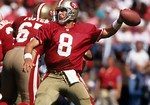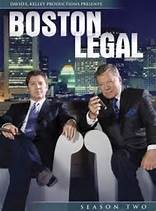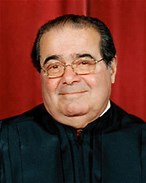I’ll say this: if you’re only going to run one marathon in your life, you could do a lot worse than picking the Surf City Marathon in Huntington Beach, CA. Flat, fast, amazing views. And, if in San Diego, get over to Ocean Beach and check out Hodad’s.
I’ll also say this: the beach life/surf vibe isn’t conducive to blogging on legal ethics. That’s why I’m just now getting around to posting the answers to last week’s #FiveforFriday quiz. Hence the title of this post.
Want to take the quiz before seeing the answers? Go HERE.
EPIC (Perfect score)
TUBULAR
- Matt Anderson, Pratt Vreeland Kennelly Martin & White
- Robert Grundstein
- Brendan Scherer, Vermont Law School
- Allison Wannop, Dinse Knapp McAndrew
ANSWERS
Question 1
Tomorrow, the National Organization Bar Counsel’s mid-winter meeting will include a seminar on succession planning. Vermont’s Rules of Professional Conduct do not require succession plans. However, the Comment and Reporter’s Notes to one of the rules suggest that the duty imposed by the rule includes a duty to have a succession plan. It’s the rule that imposes a duty of:
- A. Reasonable communication with a client
- B. Competent representation of a client
- C. Diligent and prompt representation on behalf of a client. See, Rule 1.3, Comment [5].
- D. Withdrawal when continued representation is unfeasible
Question 2
Today’s seminars include one on “Online Reputation Management.” To date, disciplinary sanctions in cases involving online reputation management have most often followed violations of the rule on:
- A. Client confidences, • In re the Matter of David J. Steele, Ind. Supreme Court No. 49S00-1509-DI-527 (Ind. 2015) (among other violations, Indiana lawyer disbarred for, by his own description, “actively manipulate[ing his] Avvo reviews by monetarily incentivizing positive reviews, and punishing clients who wr[o]te negative reviews by publicly exposing confidential information about them.” Responses to the negative reviews included numerous false statements)
- • People v. James C. Underhill Jr., 2015 WL 4944102 (Colo. 2015) (Colorado lawyer suspended for 18 months for, among other violations, disclosing confidential information in response to internet complaints about his fees and services)
- • In the Matter of Tsamis, Ill. Att’y Registration and Disciplinary Comm’n, Comm’n No. 2013PR00095 (Ill. 2014) (Chicago lawyer reprimanded for revealing confidential information when responding to a negative review on the legal information website Avvo)
- • In the Matter of Margrett A. Skinner, 295 Ga. 217, 758 S.E.2d 788 (Ga. 2014) (Georgia lawyer publicly reprimanded for improper disclosures in response to negative online review)
- • In re Quillian, 20 DB Rptr 288 (Or. 2006) (Oregon lawyer suspended for 90 days for publishing confidential information about former client in listserv post)
- B. Attorney Advertising
- C. Honesty & Candor
- D. Ex parte contacts with courts and jurors
Question 3
You settle a case on behalf of a client. Proceeds are wired to your trust account, you disburse them, and everyone goes their merry way. Your client is so pleased that she uses the “comment” feature on your firm’s website to extol your virtues. You post a response “thanks! it was great working with you.” What do Vermont’s ethics rules require you to keep for six years from the termination of your representation of this client?
- A. Records of funds you held for the client while representing her; Rule 1.15(a)(1)
- B. The client’s file
- C. A “copy” of your website because it’s an advertisement
- D. A & B. Copies of ads only need to be kept for 2 years.
Question 4
The rules suggest that government attorneys may have “authority that ordinarily reposes with a client in a private client-lawyer relationship.” Then, there is language citing two specific decisions that a government lawyer may have the authority to make, but that an attorney in a private client-lawyer relationship does not.” For 1 point each, identify the two decisions.
- Whether to accept settlement and
- Whether to appeal. See, Scope {18}
Question 5:
Cam Newton went to Auburn. Peyton Manning went to Tennessee. Neither went to law school.
Only one person has won the Super Bowl as the starting quarterback and graduated from law school. Who is he?
Steve Young of the San Franscisco 49’ers. He was the MVP of Super Bowl XXIX and graduated from BYU Law School in 1994. Yes, he attended law school while playing in the NFL. He worked out a special academic schedule with BYU.









